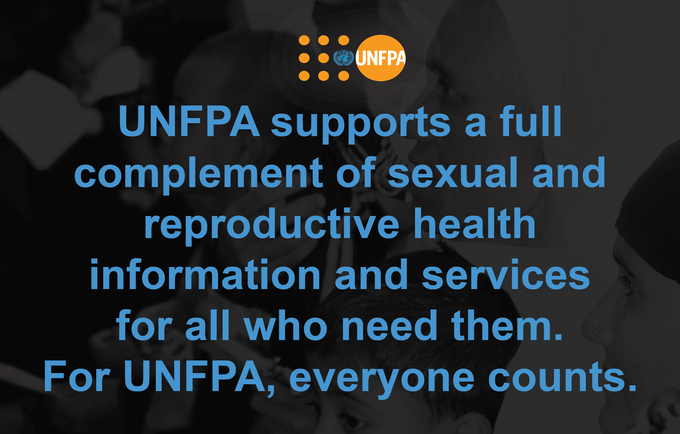28 October, 2017 - COX’s BAZAR, Bangladesh - UNFPA, the United Nations Population Fund, has long supportedthe Bangladesh Ministry of Health and Family Welfare (MoHFW) on strengthening rights-based family planning services across the country, including for Rohingya refugees in the Cox’s Bazar
District.
To clarify media reports stemming from a story on the Agence France Presse wire, UNFPA is
concerned on the reported singling out of voluntary sterilization as the family planning method to
popularize among refugees, amid the Rohingya influx from neighbouring Rakhine State in Myanmar.
UNFPA wishes to reiterate that from a rights perspective, all people whether refugees or host
communities - who want and need family planning should get it. We support the provision of family
planning services in order to meet unmet need including that of women and girls of reproductive
age. Family planning is a matter of individual choice, should be completely voluntary, and
women, girls and couples should have access to the widest method mix for them to choose from
complemented by adequate information and counselling on available methods and services.
Furthermore, UNFPA appeals to stakeholders that the same level of basic services accorded to
nationals should also be accorded to refugees, and family planning information and services
should be no exception. This will ensure parity and equity in response.
Ordinarily, those who choose to avail of family planning services in Bangladesh need a fixed address;
however, in the case of the Rohingya refugees, this is not enforced as their needs remain
even if they are in informal shelters and camps as the vast majority are.
UNFPA globally has long advocated with governments and other stakeholders to make sure that
the full spectrum of family planning methods should be offered to those who wish for it. Simply
offering sterilization would be a narrow and unethical approach.
UNFPA is supporting the Bangladesh MoHFW in the Rohingya refugee crisis by providing family
planning kits as part of the inter-agency humanitarian response. As well as providing commodities,
UNFPA’s 42 midwives deployed so far in camps across Cox’s Bazar are trained to provide
family planning services.
Together with the MoHFW, UNFPA will continue to develop appropriate strategies going forward
in meeting the unmet need for family planning and wider sexual and reproductive health services
among Rohingya and host communities in Cox’s Bazar.
It is to be noted that the unmet need for family planning in Bangladesh as a whole has remained
stagnant in recent years. Sylhet and Chittagong divisions have a higher unmet need and total fertility
rate among all divisions. Efforts to improve family planning information and services for
refugees on the basis of voluntary choice can therefore also be expected to significantly benefit the host communities.
Contact:
Roy Wadia - wadia@unfpa.org +66848752634
Rachel Tze - tze@unfpa.org +8801779784860

